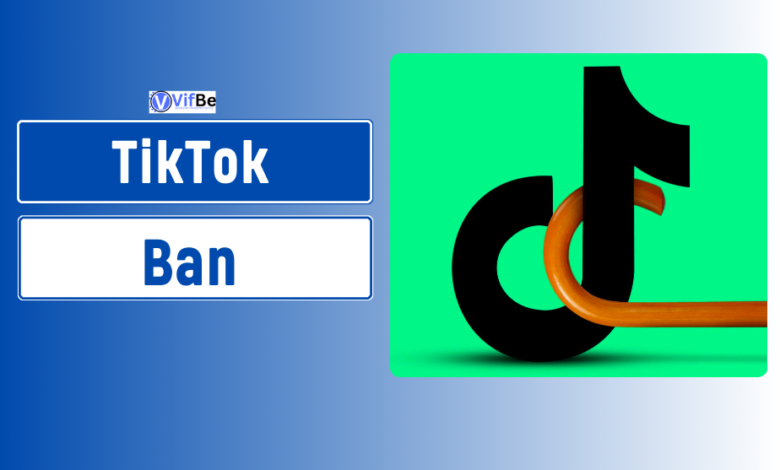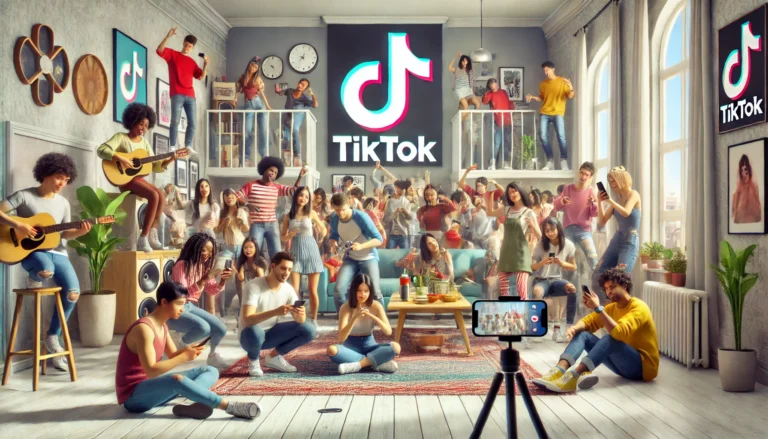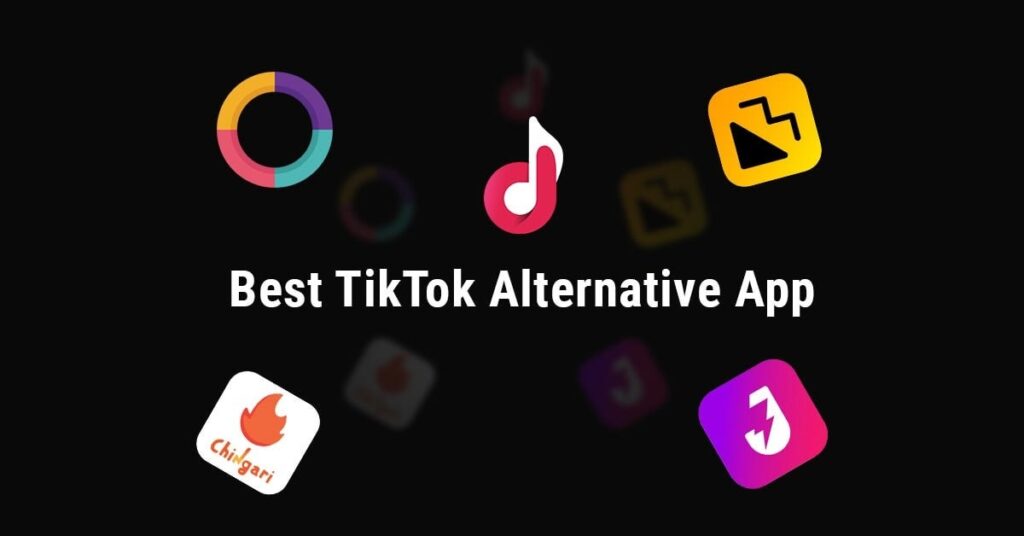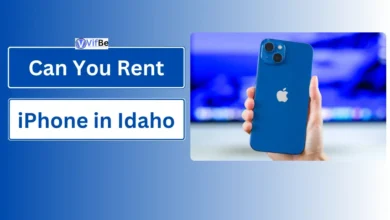TikTok Ban: What It Means for US Users and the Future of Social Media

The prospect of a TikTok ban has raised heated discussions about the app across the United States, where people worry about loss data privacy and information security. As millions of American users and content producers use the app it has gone farther than entertainment implications. This article explores the complexities surrounding the [TikTok Ban: [What it means for US users] and then its potential consequences on the digital environment.
TikTok Restrictions in the US: An Overview

The push and pull toward banning TikTok in the US touches on the security of the country. The US government has expressed concerns about TikTok own its, ByteDance stationed in China. Some people say TikTok gathers personal information that may end up in the wrong hands, specifically the Chinese public. This has prompted debates on the current limits placed in the use of TikTok in the US and how such polices might shift the manner in which millions use social media.
Threats to National Security and Personal and Social Data Privacy
With time, national security has emerged as the major reason for the call for the TikTok ban. The worry is that through the abovementioned data, including browsing history, locations, and biometric data, Collected by TikTok, US authorities could be targeted by the Chinese government for examination due to Chinese data privacy laws. This has spurned critics regarding spying and cyber spying. Furthermore, it notes that data privacy laws in the United States are not deemed sufficient to cope with the issues of foreign-owned applications – this push to regulate has also been growing.
TikTok has collected communication and transactional data in the form of users’ content interaction, and location, and device details of the user’s device. While TikTok continues to assert that it stores the data of its users in the USA, critics are quick to note that the company could well be forced to provide this data to Beijing.
Impact on Content Creators
The first of unclear social impacts of a TikTok ban would directly affect content producers who make their content on the platform. TikTok today holds a significant position within the framework of the creator economy where everyone — influencers, brands, and businesses — gets an audience that spans across the globe. Thus, for the creators, the app provides the right balance between discoverability and interaction with the audience, and a ban will affect income, sponsorship, and a community.
Looking at the effects of the Creator Economy and how income losses.
TikTok exposes small creators quickly through the algorithmic driven model, with common results usually seeing the likes of viral fame and bucket loads of monetization. Some firms rely on promoting products and campaigns on TikTok using influential personalities – a blanket ban would force this to other sites.
But not all creators can do the same in the other apps such as Instagram Reels or YouTube Shorts since they have different operations. The consequences that potential TikTok banning is important for creators are: loss of revenue, fewer opportunities to cooperate with brands, and lack of interaction with potential audiences who refuse other platforms.
Alternatives to TikTok: What’s Next for US Users?

That is why if the TikTok ban comes into force, many users and creators will have to look for other platforms for collaboration. A few examples are Instagram Reels, YouTube Shorts, and Snapchat Spotlight, which stand the most chances for replacing TikTok. Though these apps provide some form of short-form video sharing feature, they don’t really have the same kind of social interaction integration or organic growth like TikTok.
Possible Platforms to Switch To
- Instagram Reels: Given the fact that Reels is part of Instagram, users receive a familiar application interface. Nevertheless, it is not quite as helpful to small creators in finding viral traffic.
- YouTube Shorts: Therefore, Shorts is an attractive proposition given that YouTube already has the video format infrastructure in place, whereas some of the creators want to create both long and short-form content.
- Triller: There is still an application called Triller which have appeared as an American alternative to TikTok, but still does not have enough popularity and does not have the user-friendly interface as the TikTok.
Unfortunately, these alternatives do not mimic the TikTok algorithm or its virility and, thus, thousands of devoted US content generators may lose much traffic and earnings.
US-China Tech Tensions: The Broader Context
The TikTok ban is not only a valve over data protection – It is also an bargain of new US-China tech war. This one is often referred to as the Tech Cold War; all these battles mirror general geopolitical showdowns as the two leading world powers compete for tech domination. TikTok and the case is a beautiful representation of how economics, politics, and technological advancement are all so closely blending.
ByteDance and US Relations
Much has gone wrong with ByteDance’s efforts to operate in the US market and avoid running afoul of the country’s regulations. Attempts to open a subsidiary in the USA or transfer some of its divisions to American software giants like Oracle have been chocked for now, as the American administration is still reluctant to anything that does not exclude Wahaha from its Chinese affiliate. This continuous legal dispute is emblematic of the challenge of policing cross-border technology companies in America.
Overview of Social Media Regulation for the United States
Critics have also argued that the TikTok ban also vindicates beyond the Asia-Pacific region doubts over regulation of social media in the US. This worry and others are no longer unique to TIkTok but are generalizable to all social media platforms leading to increased pressure for regulation across the board. The future of other potentially contentious applications depends on the decision that will be made, most significantly regarding data protection, control of social networks, and user freedoms, possibly to applications owned by foreign companies.
Cybersecurity and Freedom of Speech
Free speech and platform responsibility are the leading issues that people discuss regarding the questions of social media censorship in the United States. But with the ban on TikTok now, the emphasise is shifted to foreign control and the security of the nation. If other countries also think in similar lines action therefore decisions to ban TikTok in the United States might precipitate some disastrous consequences to the international policy of the technical world and might lead to the formulation of more strict laws regarding data privacy or even the banning of other different applications.
Legal Cases and Future Trends
It’s therefore crucial that people are keen to follow the legal battles going on between TikTok and the US government since they will define the legal progress of social networks. If the courts support a ban, it prepares the broader examination of other applications and services possessed by foreign companies. These legal spars also raise a concern of sovereign rights versus the market economy since its supporters posited that a ban impacts freedom of choice and market creativity in the society.
The Future of Social Media

In the light of the TikTok ban currently in discussion, the further tendency of social media regulation is not very clear in the United States. The emergence of new platforms, and the development of those that currently exist may be hinged on how the government approaches its regulation in future. Regardless of the ability of TikTok to overcome this ban, then its case will define the fate of other social media platforms across the US and the world.
Conclusion:
This ban may mean a favorite social media platform is now banned for millions of US users, but it also means that change in the way social media is governed begins. New alternatives or government policies towards data privacy will inarguably redefine social media in the US in the future due to TikTok cases.
More fundamentally, the current debates between the US and China, privacy-concerned developed countries and emerging market giants, and incumbent and emerging technologies shape the future of the digital world as a user, creator, and policymaker at this crossroads.
FAQ: Related TikTok Ban: What It Means for US Users
Why is TikTok being banned in the US?
The attempt at a ban in the US is due to security threats, as well as data security that the app could pose. Due to the Chinese connection, the US administration considers the possibility of ByteDance, the owner of TikTok, transferring data from the application to Beijing, which will endanger the information of American users. These issues are rather connected with larger American-CCP conflicts and concerns about spying.
What is the timeline for the TikTok ban?
The legal battles are still on the place for TikTok ban and there is no fixed time line regarding the matter. Despite threats in the form of executive orders and lawsuits, as well as congressional hearings, TikTok’s future is still uncertain. Users should keep abreast with information from the US government and legal systems.
How will the TikTok ban affect US content creators?
The ban threatens to reduce the financial source of income for those freelance citizens who use the application for self-realization and earnings, brand partnerships, and public communication. Some creators are especially vulnerable to those circumstances and, thus, may have to close their accounts and see their income cut and the number of subscribers decline if they fail to move to Instagram Reels or YouTube Shorts.
Are there alternatives to TikTok for US users?
Yes, there are several alternatives to TikTok, including:
Instagram Reels: People interact with Shoppable Feed ads which are combined with Reels, similar to short-form video sharing.
YouTube Shorts: YouTube’s space, for those bite-sized content videos that are easy to consume.
Triller: A Gen Z focused app similar to TikTok, from the US but with fewer downloads.
Snapchat Spotlight: A new social media platform that is growing as a short-form video site.
However, none of the options can provide the same algorithm and user experience as TikTok.
How does the TikTok ban relate to national security concerns?
These pro-activity threats stem from the fears that TikTok could be compelled to surrender to the China’s authorities personal data belonging to the US citizens. This is as part of a larger question of what foreign apps are doing with data they acquire from American citizens and whether such data can be used for nefarious purposes such as espionage or engineering an influence operation.





One Comment